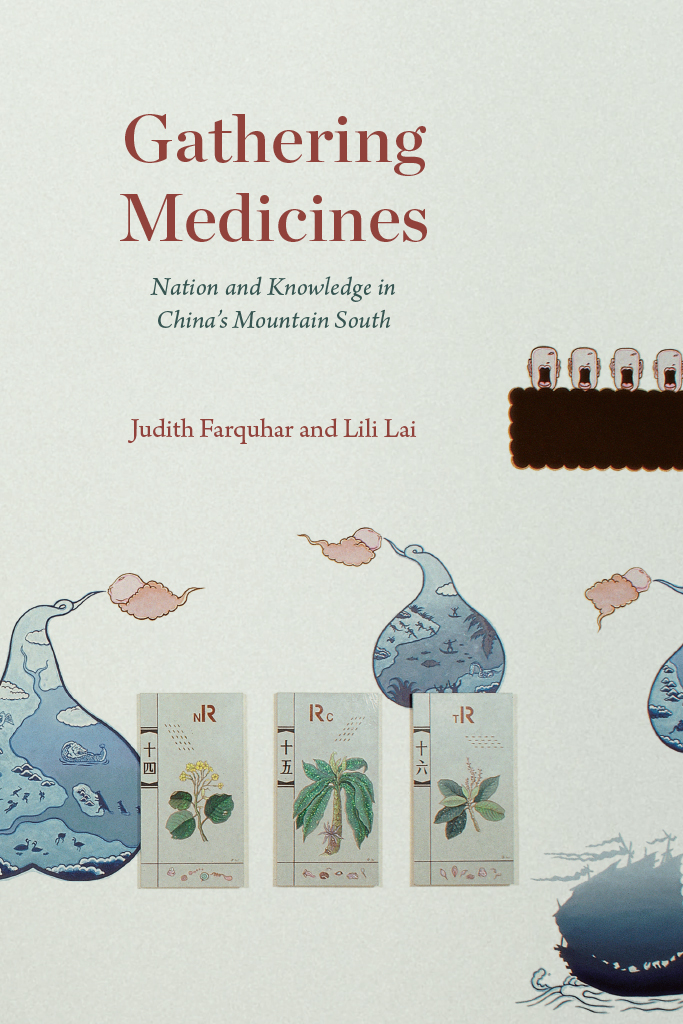
Gathering Medicines
Gathering Medicines
Nation and Knowledge in Chinas Mountain South
Judith Farquhar and Lili Lai
The University of Chicago Press
Chicago and London
The University of Chicago Press, Chicago 60637
The University of Chicago Press, Ltd., London
2021 by The University of Chicago
All rights reserved. No part of this book may be used or reproduced in any manner whatsoever without written permission, except in the case of brief quotations in critical articles and reviews. For more information, contact the University of Chicago Press, 1427 E. 60th St., Chicago, IL 60637.
Published 2021
Printed in the United States of America
30 29 28 27 26 25 24 23 22 21 1 2 3 4 5
ISBN-13: 978-0-226-76351-4 (cloth)
ISBN-13: 978-0-226-76365-1 (paper)
ISBN-13: 978-0-226-76379-8 (e-book)
DOI: https://doi.org/10.7208/chicago/9780226763798.001.0001
Library of Congress Cataloging-in-Publication Data
Names: Farquhar, Judith, author. | Lai, Lili, author.
Title: Gathering medicines : nation and knowledge in Chinas Mountain South / Judith Farquhar and Lili Lai.
Description: Chicago : University of Chicago Press, 2021. | Includes bibliographical references and index.
Identifiers: LCCN 2020038864 | ISBN 9780226763514 (cloth) |
ISBN 9780226763651 (paperback) | ISBN 9780226763798 (e-book)
Subjects: LCSH: Medicine, ChineseChina, Southeast. | Medicinal plantsChina, Southeast. | HealersChina, Southeast. | Zhuang (Chinese people)Medicine. | Yao (Southeast Asian people)Medicine.
Classification: LCC R603.S8 F37 2021 | DDC 610dc23
LC record available at https://lccn.loc.gov/2020038864
 This paper meets the requirements of ANSI / NISO Z39.48-1992 (Permanence of Paper).
This paper meets the requirements of ANSI / NISO Z39.48-1992 (Permanence of Paper).
Contents
In July of 2011, research for this book took us to Jinxiu, in the Guangxi Zhuang Self-Governing Region. Jinxiu town is the administrative center for a Yao nationality self-governing county. Located outside this booming county town, at the intersection of two regional roads with a lot of truck traffic, sits a hospital of Yao nationality medicine (Yaoyi Yiyuan ) with forty inpatient beds, four or five outpatient clinics, and a diverse staff of several dozen medical professionals. Some of these doctors and nurses are Yao, some are members of the Han majority, and a few belong to other nationality groups. But the medical care they deliver there is marked as particularly Yao.
Lili had been to this hospital before our first visit together, and one of our projects local researchers, Yang Jian, was employed there as well, training in Yao medicine with senior resident Dr. Goldstamp Huang. On this occasion, we were welcomed as old friends, then, and enthusiastically (re)introduced to the work of the hospital over a period of several days. This short but informative visit was rather typical of our itinerant field research on minority nationality medical systems in Chinas mountain south. Invited by leaders at the State Administration of Traditional Chinese Medicine (SATCM) in Beijing, in 2010, to bring an anthropological component to a new national initiative to develop the nationality medicines of (ideally) all fifty-five registered minorities, Lili invited Judith as field research partner and co-author. The SATCM then helped us to recruit research associates for seven medically various nationality groups, expecting them to help us in situ with local languages, contacts, experienced insights, and logistics. Yang Jian was at the time a newly appointed resident in the Yao Hospital, and she is recognized as a member of the Han majority. But she was working hard to learn the particularities of Yao medicine, and in the course of several visits we were fortunate to be able to join her in Jinxiu-area wards and clinics. She sent us many insightful field notes over the years of our multi-sited research.
Toward the end of the second day of our 2011 visit, Hospital Director Liang (whose nationality is Han, but who has a father-in-law who is a famous Yao medicine doctor in private practice) and several of the Yao doctors decided wed better take a group photo in front of the buildings wide main door. As our small group of visitors, senior staff, and a research assistant began to gather in front of numerous identifying signs at the entrance, one of the white-coated doctors said, Wait, we have to get our hats! All of the medical staff, including the logistics manager (who was also our omnicompetent driver during this visit), laughing as they went, rushed back inside to get their Yao-style hats and put them on for the picture.
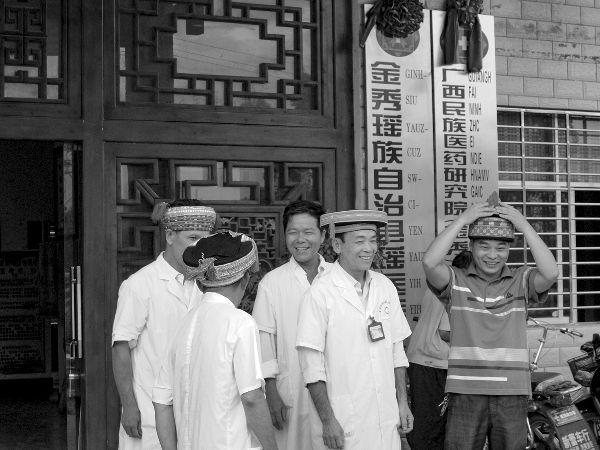
Figure 1. Staff at a Yao nationality hospital prepare to pose for a group photograph.
The hats were elaborately folded of red and black cloth and embroidered with colorful thread, showing different styles indicative of particular Yao subgroups. Everyone was either able to grab their own proper hat or borrow one from a colleague. Han nationality staff were not shy about wearing Yao hats. And for some of the pictures we took, our friends loaned usforeigners that we areYao hats to wear.
Everyone thought it was imperative to pose for these pictures in the proper nationality headgear and at the same time found the hasty scramble to locate their fancy hats from clinic offices fairly hilarious. So did we, but as outsiders we were in a better position to laugh at the ethnicity embodied in this medical institution than our white-coated medical hosts were. Indeed, they were laughing not at their hospitals nationality character, but rather at the silly need to remember to assume a nationality sign for show, as we all assembled a snapshot directed toward a world outside Jinxiu, beyond the Great Yao Mountains enfolding this place, and even far from Guangxi province.
This was not the only occasion on which we asked ourselves, how essential is the nationality character of this medicine? Did it matter that Director Liang, who is of the majority Han nationality, has his own Yao hat and wears it for ritual appearances? What does it mean that 90 percent of the many staff portraits displayed in the hospitals lobby include some form of Yao or other nationality hat in the picture? How often do these cosmopolitan medical people wear their hats, and for what occasions? We had seen already that older Yao women quite often wear their beautifully folded hats every day, all day, as a matter of propriety. Was it, perhaps, the conservative (and possibly gendered) propriety of hat wearing that was making the medical staff laugh as they dug out their Yao hats?
Whatever the nature of the joke we all shared that day in July, it was nevertheless clear to us during our stay in Jinxiu and in the Great Yao Mountains that nationality is no joke there. Our lighthearted hat play took place in full awareness that there were seriously ill patients in the hospital building behind us (perhaps looking out the window as we played). We all knew that some of these inpatients had traveled a long way to consult Yao doctors, desperate for effective therapy after experiencing painful disappointments with both biomedicine and traditional Chinese medicine (TCM). It was, thus, important to everyone (or at least most of us) that the services offered there are Yao nationality medicine (not traditional Chinese medicine, not Western medicine). Here, as in many other places in Chinas mountainous south, locality, nationality, natural medicines, and grassroots knowledge are drawn together into a multidimensional and highly valued form of expert life.
Next page
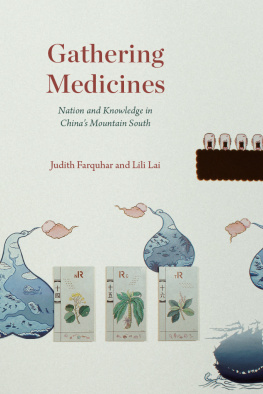
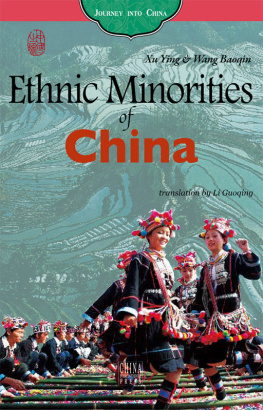


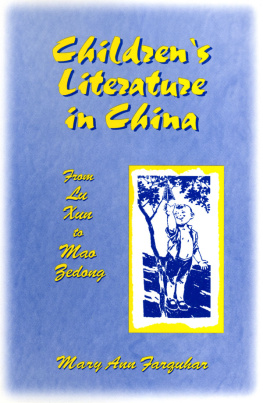
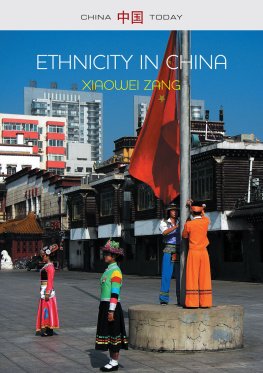


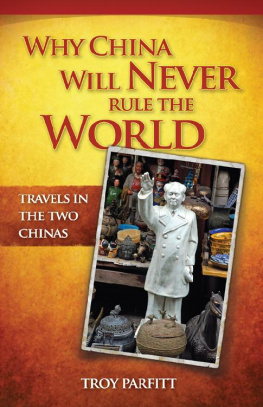

 This paper meets the requirements of ANSI / NISO Z39.48-1992 (Permanence of Paper).
This paper meets the requirements of ANSI / NISO Z39.48-1992 (Permanence of Paper).